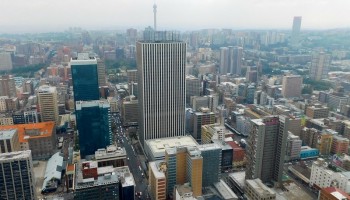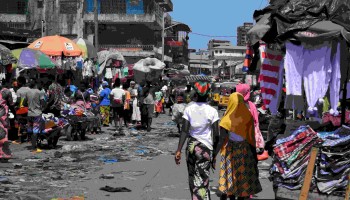The country’s Supreme Court overturned earlier this month the convictions of two alleged drug kingpins – Seidi Ba, a citizen of Guinea-Bissau, and Ricardo Monje, a Colombian national. They had been sentenced to 20 years in prison in connection with the 2019 record seizure of 1.8 tonnes of cocaine.
According to the report, the decision was not accidental.
When Umaro Cissoko Embalo took the presidential office in January 2020, he announced an end to the ‘cocaine era’.
His inauguration was indeed followed by a marked fall in the volumes of cocaine seized in the country. However, intelligence from law enforcement authorities indicated that the discharge of cocaine from ships in the country’s territorial waters was, in fact, increasing.
The report attributed this paradox to a systematic weakening of the judicial system under Embalo’s rule, resulting in its debilitated capacity to take action against smugglers. “Since early 2020, executive influence has increased over key nodes of the criminal justice system,” it said.
The cocaine trade in Guinea-Bissau took hold amid turmoil following the 1998-1999 civil war, during which a faction of the army ousted then-President Joao Bernardo Vieira.
With the assistance of the military and Venezuelan and Colombian cartels, smugglers took advantage of the country’s intricate coastline and numerous small islands.
Typically, cocaine is discharged from larger ships in the ocean and transported to the shore by smaller vessels. Subsequently, the shipments are smuggled to Senegal, entering through the rebellious Casamance region, and then to Mali or Mauritania with Europe as the final destination.
The report said that the rise of the cocaine economy has been facilitated by elite protection networks, which over the years became deeply embedded in Guinea-Bissau’s political architecture, thus enjoying remarkable resilience. It said that the scene is “constituted of longstanding protagonists and a cast of characters that exit the stage at one point, only to re-enter later and repeat the performance.”
The existing power-sharing settlement seems to be in the process of change, however.
Embalo has taken steps to centralize power in the office of the president and weaken the military, which has traditionally dominated the cocaine trade.
Concerned about Embalo’s actions, the military is likely to have stood behind the foiled coup attempt in February, when heavily-armed men launched gunfire on the governmental palace in Bissau, the report said.
While the power struggle is still ongoing, there are indications that cocaine smuggling will remain prominent regardless of the outcome. Owing to the country’s low tax base and generally unstable revenue streams, the elites often turn to illicit markets to supplement public budgets and finance election campaigns.
The report suggested that they might do so again now when the economy is weakened by the impacts of the COVID-19 pandemic and a fall in demand for cashew nuts, which account for 90% of exports.
“The timing of the acquittal of Seidi Ba and Ricardo Monje in June 2022 just months before parliamentary elections being scheduled for December 2022 may fuel suspicion that the cocaine market is already being fingered as a potential source of electoral financing,” the report said.






